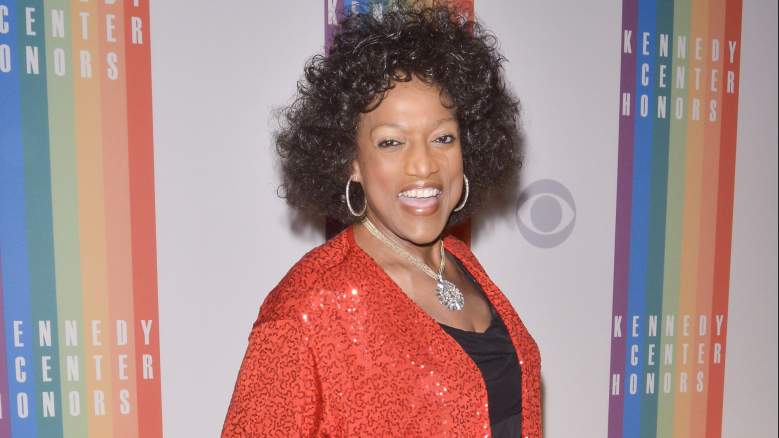
Getty Jessye Norman
Jessye Norman, the international opera singing superstar, died on September 30, 2019, in Mount Sinai St. Luke’s Hospital in New York, New York, her family said. She was 74.
In a statement released to the Associated Press, Norman’s family said she died at 7:54 a.m. from septic shock and multi-organ failure secondary to complications of a spinal cord injury she had sustained in 2015. The four-time Grammy Award winner was surrounded by loved ones when she passed, the family said.
The family’s statement read, “We are so proud of Jessye’s musical achievements and the inspiration that she provided to audiences around the world that will continue to be a source of joy. We are equally proud of her humanitarian endeavors addressing matters such as hunger, homelessness, youth development, and arts and culture education.”
Norman was a trailblazer in the opera world, not only for being one of the first Black singers to reach such an incredible level of success singing classical works, and the sheer spellbinding power of her soprano voice, but for what she gave back to the artistic community. After learning the news of Norman’s death, The Met referred to her in an official statement as “one of the greatest artists to ever sing on our stage.”
Here’s what you need to know about Jessye Norman:
1. Norman Studied Music at Howard University
Born in Augusta, Georgia, on September 15, 1945, Norman grew up singing at Mount Calvary Baptist Church, and after listening to a recording of contralto Marian Anderson at age 10, Norman knew her dream was to become an opera star.
Norman earned a scholarship to study music at Howard University, the prestigious, historically black college located in Washington, D.C., and after graduating in 1967, continued her studies at the Peabody Institute in Baltimore, and University of Michigan, where she earned a master’s degree in music theory and vocal technique, refining her ability to sing in Italian, French, and German. Later in life, she earned honorary doctorates from numerous elite schools including Julliard, Harvard, and Yale.
At 23, Norman made her operatic debut in 1969 in Berlin, performing the role of Elisabeth in Tannhäuser. And throughout her nearly 50 year career, she performed for audiences on the world’s most famous stages such as Convent Garden, Lincoln Center’s Alice Tully Hall, Carnegie Hall, and La Scala. With the Metropolitan Opera, she did over 80 shows including works by Poulenc, Janacek, Bartok, Strauss, and Schoenberg.
Her vocal talent was not just limited to singing the classics, she could perform songs by Duke Ellington, George and Ira Gershwin, and many other contemporary artists.
2. Norman Is the Youngest Woman to Ever Receive a Kennedy Center Honor
Throughout her 50-year career, Norman was honored with 15 Grammy nominations, was inducted into the Royal Academy of Music and the Georgia Music Hall of Fame. In France, there’s an orchid named after her, and the country also honored her with the title, Commander of the Order of the Arts.
At 52, Norman became the youngest woman to receive the Kennedy Center Honors Award in 1997. In 2006, she received the Grammy Lifetime Achievement Award. The singer wrote a memoir about her life, and being a black artist working her way up in the world of opera entitled Stand Up Straight and Sing, which was released in May 2014.
Norman recorded over 75 records in her lifetime, and in 2010, received the National Medal of the Arts from President Barack Obama.
3. Norman Made a Plea for ‘America the Beautiful’ to be the National Anthem, Because ‘The Star-Spangled Banner is Too Hard to Sing’
In an interview Norman said, “‘The Star-Spangled Banner’ carries too much territory. It’s an octave and a fifth, that means you’ve got 13 notes that are incorporated into our national anthem. For a song that is supposed to sung by the general public, one octave is enough.
“The song I wish we had as a national anthem is America the Beautiful. It doesn’t talk about war, it doesn’t talk about anything except the beauty of this land and the joy that we should have in being in this land. It’s a much more beautiful song, even though I understand completely the rousing that happens in the heart from just the opening bars of ‘The Star-Spangled Banner.'”
4. She Helped Open the Jessye Norman School of the Arts in Her Hometown
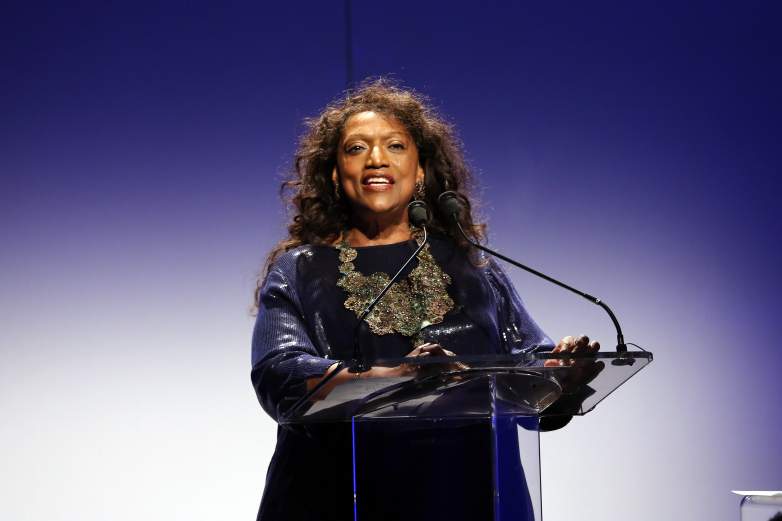
Jessye Norman
In addition to performing “America the Beautiful” at the new World Trade Center unveiling, and donating thousands of records, documents and photographs to the Library of Congress, there are two institutions that bear Norman’s name. In 2003, the singer partnered up with the Rachel Longstreet Foundation to open the Jessye Norman School of the Arts in her hometown of Augusta, a free after-school program established for economically disadvantaged students. Also in her honor, Augusta named their musical arena Jessye Norman Amphitheater, which is located on the Savannah River.
Norman served on the boards of Carnegie Hall, the New York Public Library, the Elton John AIDS Foundation, the Lupus Foundation, and the Partnership for the Homeless.
5. Famous Musicians, Artists & Writers from All Over the World Mourn Her Death
For Norman’s multitude of fans, age 74 was too young to go, and the news of her death caused an outpouring of love and tributes on Twitter from some of the world’s most famous fellow singers, writers, and artists.
Craig Mazin, write and director of HBO’s Emmy Award winning series Chernobyl, nailed it when he referred to her as the “Gretzky” and “Babe Ruth” of opera. Tony Award winner and Broadway legend Audra McDonald called her “otherworldly.”
READ NEXT: WATCH: Aidy Bryant Hilariously Breaks During ‘SNL’ Premiere
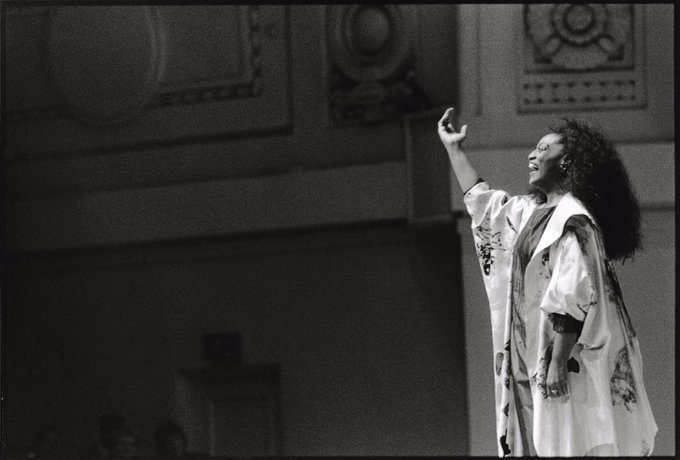
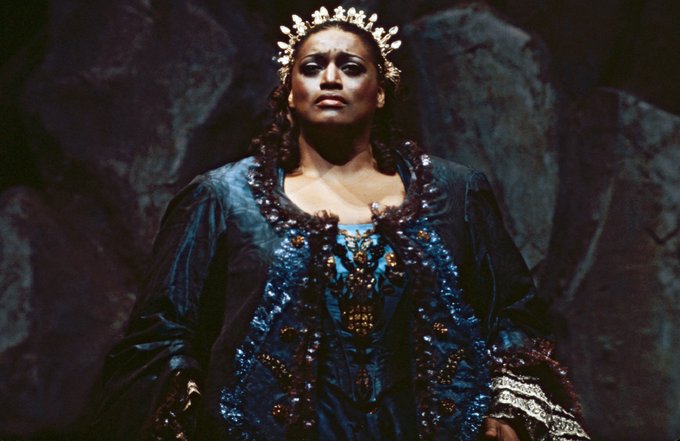
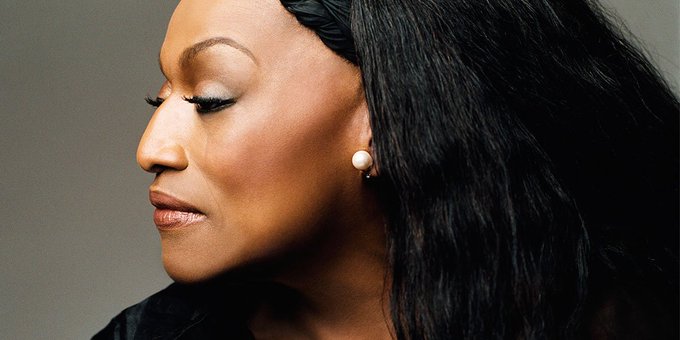
Comments
Jessye Norman, Legendary Opera Star Dead at Age 74